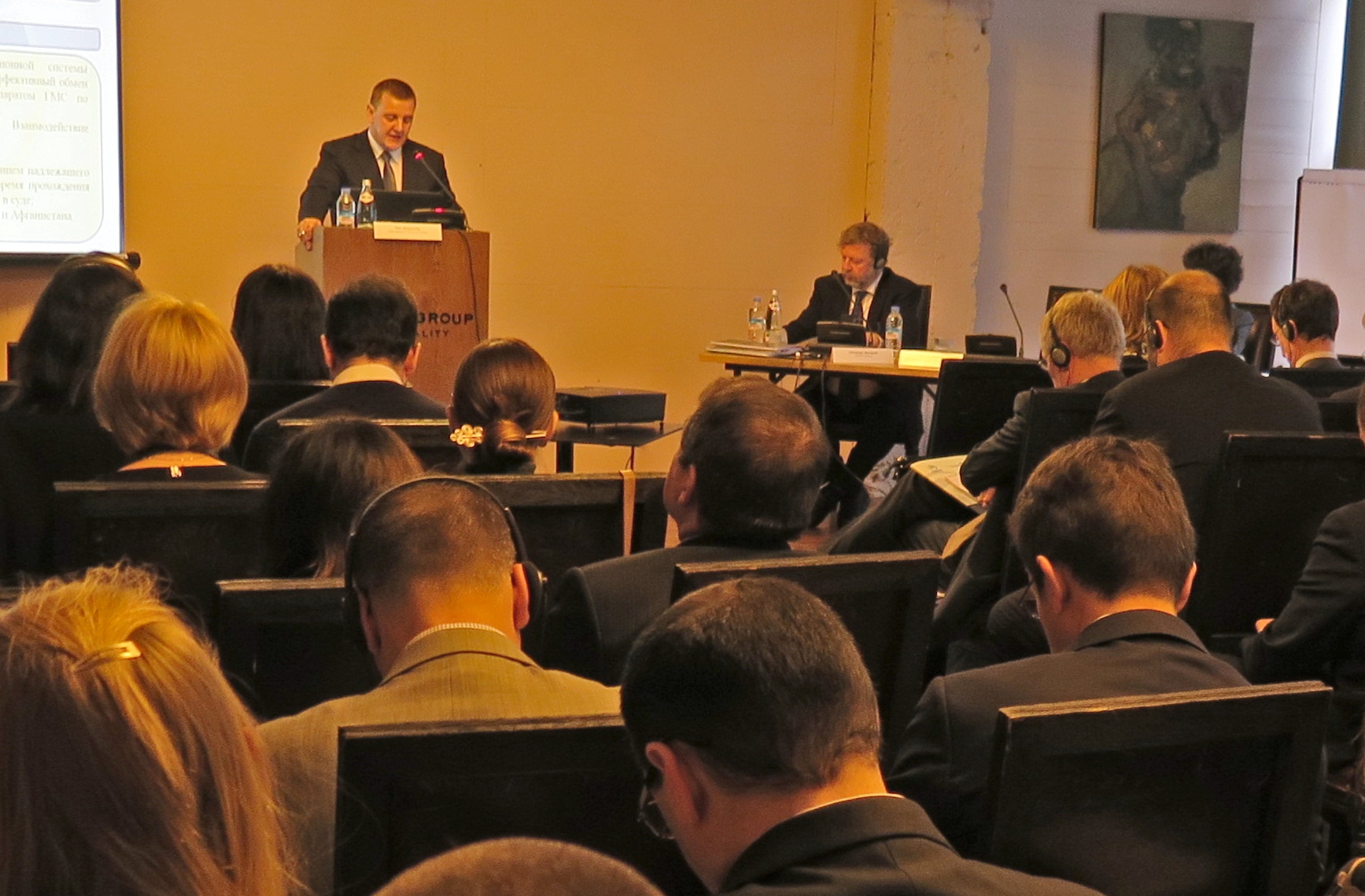In the area of asylum, UNHCR maintains close cooperation with the below listed key partners. The cooperation includes, inter alia, the capacity development activities in the framework of the UNHCR project “Asylum Systems Quality Initiative in Eastern Europe and South Caucasus” (QIEE) covering six countries in the region: Armenia, Azerbaijan, Belarus, Moldova and Ukraine:
Ministry of Interior (MoI)
During recent years, UNHCR has enhanced its cooperation with the MoI. The MoI strategic priorities are closely linked to UNHCR’s strategic priorities, notably their supervision of the migration related activities in Ukraine and the development of the migration related policies and legislation.
State Migration Service (SMS)
The Department on Foreigners and Stateless Persons of the State Migration Service is the main counterpart of UNHCR in Ukraine. SMS was established in 2010 as a government institution coordinated by the Minister of Interior. Through SMS, the Minister implements the state migration policy on combating illegal migration, citizenship, registration of refugees and other categories of migrants. The SMS is responsible for the implementation of the Refugee Law. SMS’s headquarters in Kyiv coordinate the work of 12 regional branches that examine first instance refugee determination status. UNHCR has close working relations with the central and regional offices of the SMS.
State Border Guards Service (SBGS)
Through UNHCR’s active support, in particular during the cooperation under a number of projects in 2010 -2015, the main international airports, border-crossing points and temporary holding facilities are equipped with information stands on asylum. The official curriculum for the human rights training of border guard officials was developed jointly with UNHCR. UNHCR continued to involve SBGS into training and coordination events related to asylum during 2015-2017, including at the regional level through the QIEE events.
System of Administrative courts
Following many years of very close and successful cooperation with the Higher Administrative Court of Ukraine and the National School for Judges, UNHCR has already established a cooperation with the newly reformed Supreme Court of Ukraine in the areas pertaining to UNHCR’s mandate. The forms of cooperation involve, inter alia, the organization of workshops and seminars for judges dealing with asylum cases in the administrative courts of Ukraine.
Coordination Center for Legal Aid Provision
A free legal aid system was established in Ukraine on 2 June 2011, following the adoption of the law of Ukraine “On Free Legal Aid” with the Coordination Center for Legal Aid Provision created in 2012. Since then, UNHCR has been actively engaged in providing support to their staff and advocates collaborating with the Center. In 2018, UNHCR developed a comprehensive plan detailing areas of collaboration and coordination between the Center and UNHCR as well as activities aiming at strengthening their capacity to handle asylum, statelessness and displacement related cases.
Ukrainian Parliament Commissioner for Human Rights
The Ombudsperson for Human Rights is a critical partner, as the specific situation of IDPs, refugees and stateless persons is integrated into the National Human Rights Strategy of Ukraine. For a number of years, UNHCR has been collaborating with the Ombudsperson’s Office, from the referral of individual cases to the organization of joint events. Preventing and combating discrimination is also part of the oversight role of the Ombudsperson for Human Rights and a cross-cutting concern for UNHCR.
Ministry for Veterans, Temporarily Occupied Territories and IDPs
It was established in April 2016. UNHCR has actively cooperated and supported the ministry since its establishment. Key areas of cooperation include:
- Legislation: The Ministry has been supporting the functioning of various ad hoc working groups convened to elaborate new or amend existing legislation in the area of protection of IDPs and conflict-affected populations. The topics covered included IDP registration, housing issues, access to education, birth and death registration and other issues. UNHCR has provided expert legal advice to the legislation proposed by the Ministry.
- Communication: UNHCR has supported the Ministry in its strategic communications, such as by providing a communications consultant and translator, and other technical support services.
- Checkpoints: The Ministry continues to advocate within the government for better conditions at the checkpoints. At the specific request of the Ministry, UNHCR purchased body cameras for use by border guards at one checkpoint in the East as an anti-corruption measure. UNHCR also improved weather shelters at the checkpoints both in the East and at the administrative boundary with Crimea.
- Housing for IDPs: UNHCR put together a small team, including financial and legal specialists, to design pilot housing project for IDPs. The project would be implemented jointly by municipalities and international NGOs, and funded by the German investment bank KfW channelled through MinTOT. In surveys and through focus group discussions, IDPs consistently identify affordable housing and employment as their top priorities and key to their integration.
For more information on UNHCR’s cooperation with Ukrainian authorities, please find our latest ‘UNHCR Ukraine Cooperation with authorities’ thematic update.

